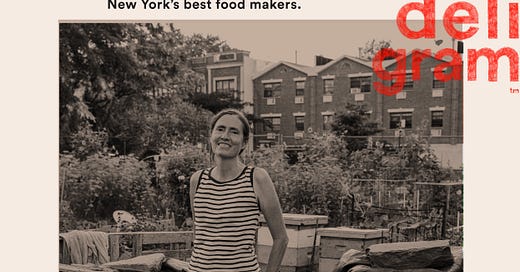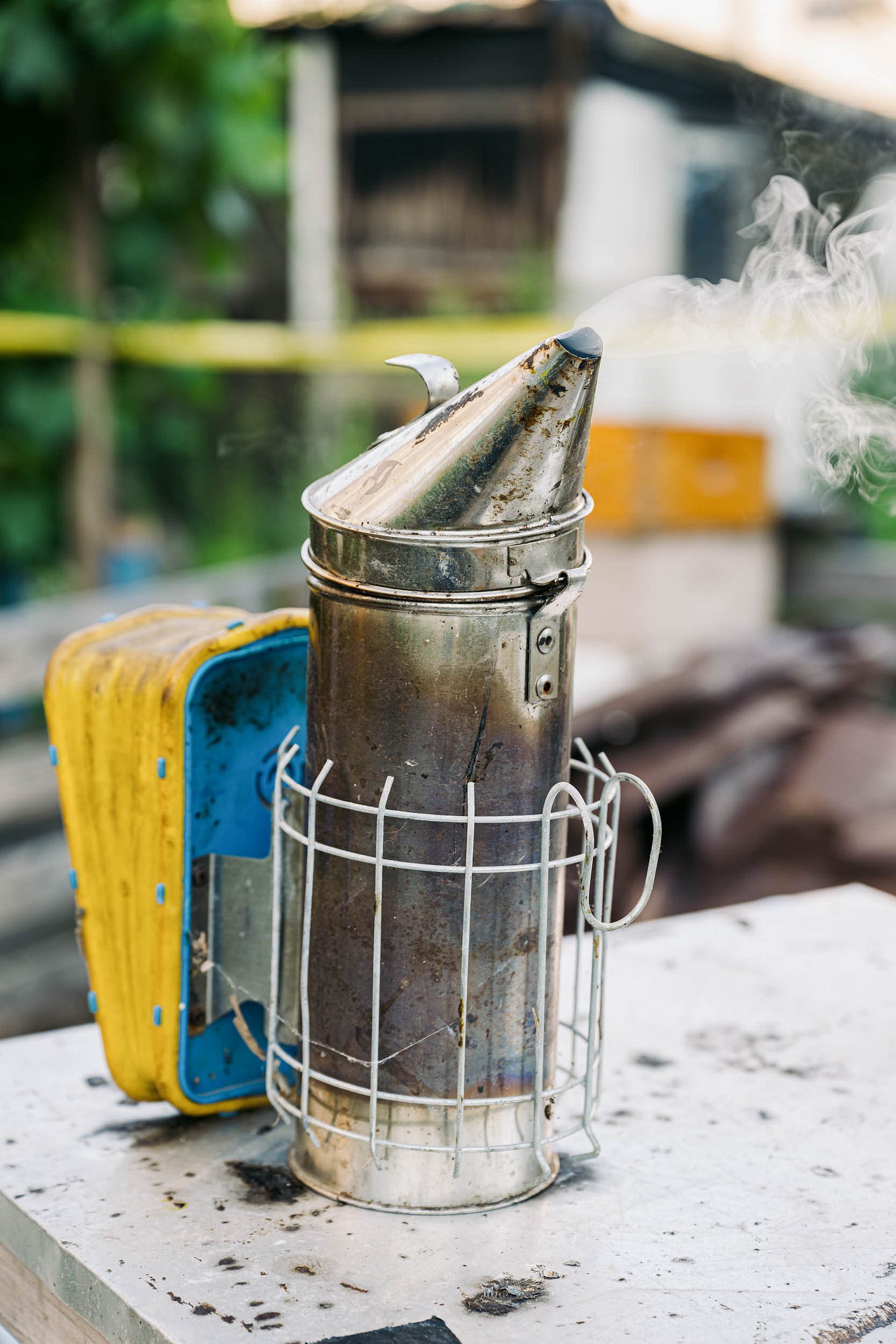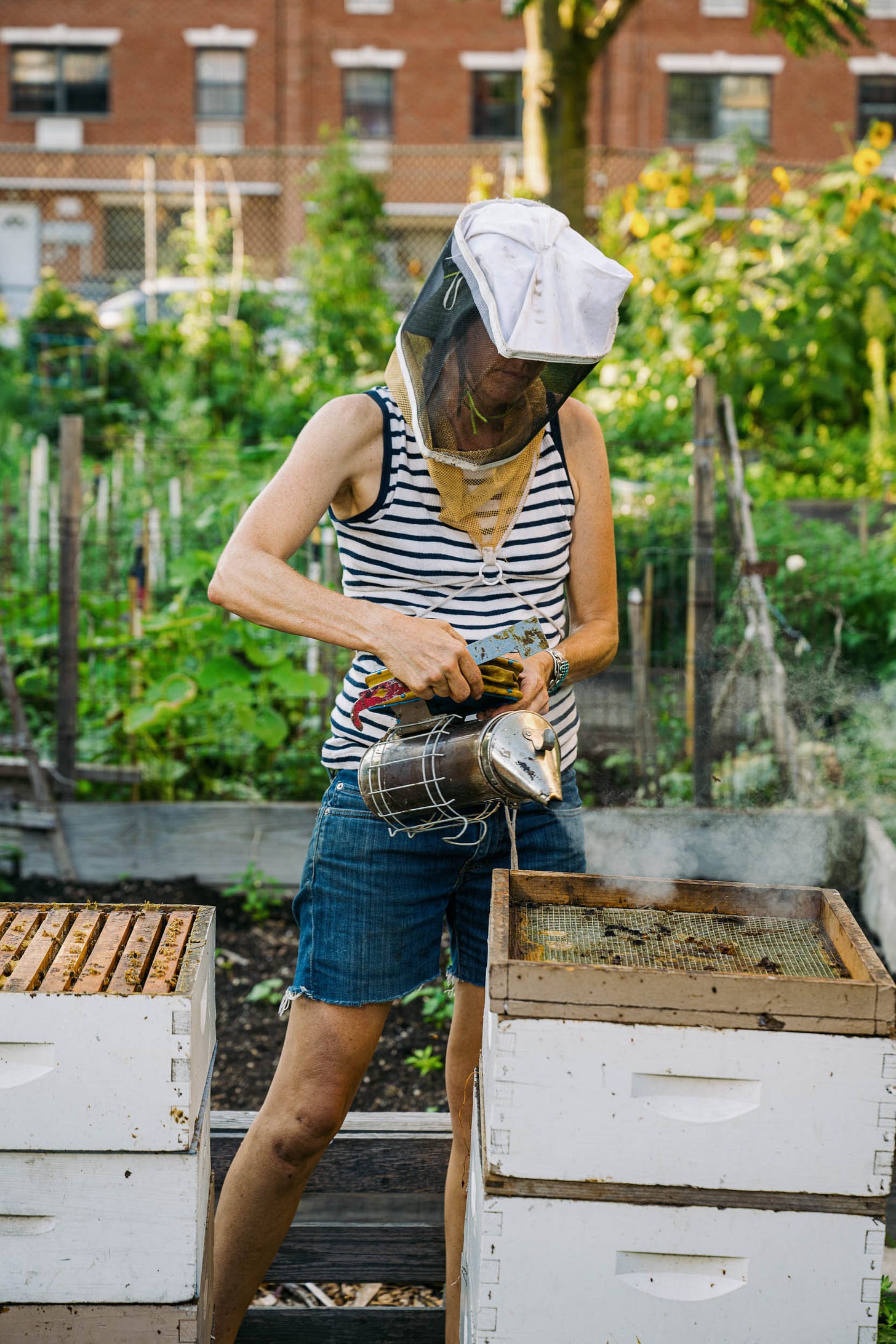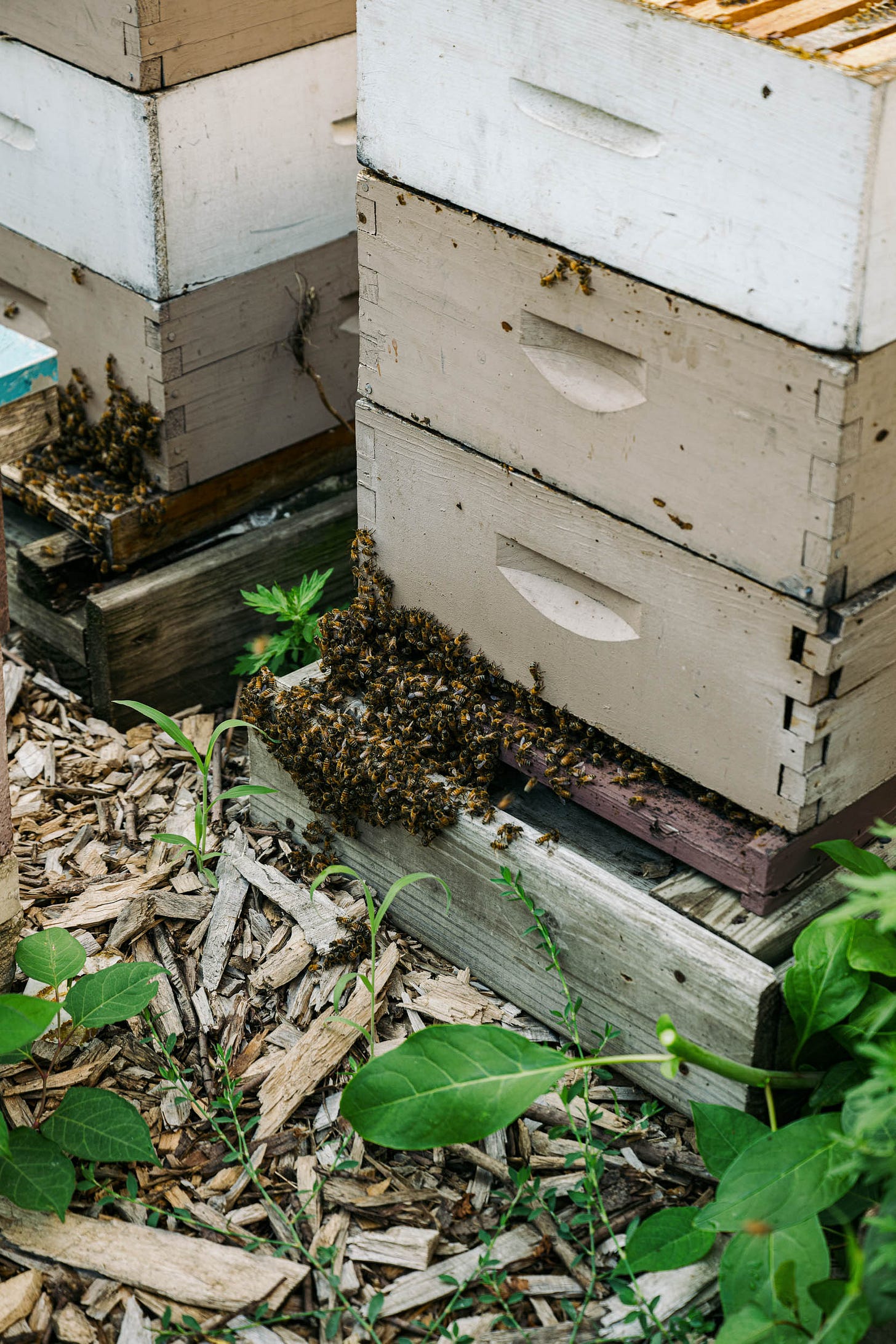Meet the Beekeeper Making Honey In a Brooklyn Community Garden
The Deligram is an ode to the artisanal food makers of New York. At the end of summer, we spoke to Tart Vinegar’s Chris Crawford about making her cult-favorite raw vinegars and learned about Yana Volfson’s favorite things. Now, we’re going back to school with Brooklyn Queen Honey’s Margot Dorn, an art teacher and beekeeper who is bringing hyper local honey and education to her community in Brooklyn.
The Product: Locally made honey. [Editor’s note: get yours before Rosh Hashanah!]
How To Buy: Order online at teapigs.com, or shop in person in Brooklyn stores including The Greene Grape, BLKYN Larder, and O Live.
Price: $18 for an 8 ounce jar.
I am from Columbus, Ohio, originally. My dad was a large animal veterinarian and we always had a huge garden growing up. I always had a fantasy about beekeeping – since I was in college. I moved to New York with my husband about 15 years ago, and in New York, you can learn basically anything. At the time, James Fisher from NYC Beekeeping was running these free, intensive classes–it was something like eight classes, three hours each. Toward the end of the classes there was a whole debacle over a hive that was exposed in Fort Greene Park after Hurricane Irene ripped a limb off of one of the trees. That hive ended up going to a woman I later became friends with, and that was another toe in the water toward getting interested. I took the class again because I wanted to keep working and at that point I ordered a hive package. I started with one, and the second year it started to multiply and I had four hives in the community garden I joined, Hart to Hart.
Over the years, while working full-time as an art teacher, I had other hobby projects that I’d try to turn into businesses–I had a whole pickle fantasy and an upholstery business for a bit. The first year of beekeeping there was a small harvest of honey, but by the second it quickly became more honey than you know what to do with. I was working with a group of kids at the time that I was teaching branding and entrepreneurial skills to. In 2015, we made a label and started posting about it on Instagram and approached local stores like The Greene Grape. At the time, it was the beginning of a lot of attention and concern for the bees, so they were buying as much as I could give them, pretty much. It was pretty amazing to go from keeping bees in the garden to all of a sudden being in these reputable stores, that relationship was a point of pride. I was, and still am, amazed about being able to observe these natural processes in the middle of the city.
There are a lot of beekeepers who are very happy to just keep their hives on their roof and never talk to anyone or share what they’re doing with their community. Being in the community garden, I am dependent on a lot of people, I have good relationships with people and make a lot of contributions, and do many hours of volunteer work because I am taking up space other people would take if I didn’t have the bees. There’s a lot of care for the community involved.
I’ve pulled back a lot from the branding aspect. Honestly, I just want to see how long I can keep beekeeping. I think the [beekeeping] fad has moved on a bit, but for me it’s a personal thing, it’s part of my cycle of seasons. If I weren’t beekeeping, there would be a big hole in my life, so I want to see how long I can sustain it for. I’m not looking to expand the business, I am happy with what I’m producing. In the future, I would like to be able to pass it on and have it be taken over, like a legacy kind of thing where people are continuing it.
I would love to mentor a group of teens, and I’ve mentored adults, but many times people say they want to do beekeeping, they don’t realize just how much work it is. When it’s 95 degrees and I have them schlepping boxes, they don’t really want to do it. People don’t realize that you can’t just be halfway in it. It’s a lot of work.
Favorite NYC food: Lincoln Station. It's right by my school–great coffee, great food. Also, the food my students feed me at the International High School. Bengali rice dishes always taste amazing somehow, and I get Haitian food like fried pork and rice with black mushrooms when I’m in luck. I also like cappuccinos in NYC. The further away you get, the more milk people add.
Favorite food growing up: I loved the fries from the fair that came in a cup, because I could put vinegar and salt on them. On my birthday, I would always ask for an artichoke. My husband makes fun of me now when I buy them – “Is it your birthday?” he’ll ask.
Favorite things to grow in the garden: Tomatoes, parsley and mint, so I can make as much tabbouleh as I want.
Advice for someone interested in joining a community garden: Sign up for a few today. The waitlists can be long but you have to get on one. Then hang out at the garden and get to know people, and start to help out. Some people with plots want to be social but not necessarily garden – you can often care for someone’s plot while you wait your turn. Also, never hesitate to walk in and hang out in a garden. They are public spaces, and they belong to you.
Story by Jamie Feldman.
Photos by Teddy Wolff for The Deligram.
This interview has been condensed and edited for clarity.














